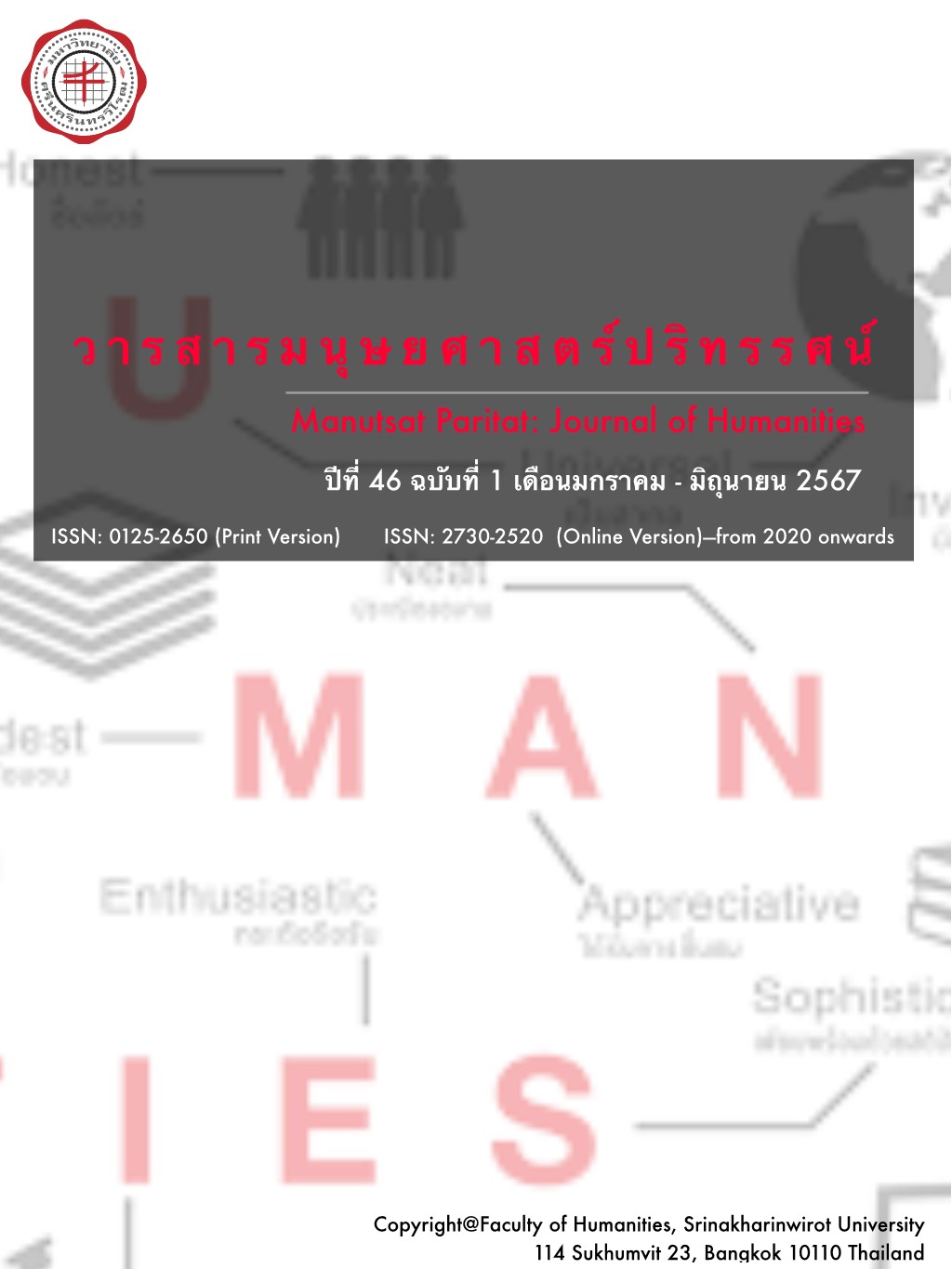Forced Online: An Exploratory Study of Language Teacher Identities During Emergency Remote Teaching from a Complex Dynamic Systems Theory Perspective
Main Article Content
Abstract
Developing our understanding of teachers and supporting them to be the teachers they want to be is not just beneficial for the wellbeing of teachers but also a fundamental
element to the learning process. Emergency Remote Teaching (ERT) can dramatically change how teachers are required to teach and influences their lives in many ways. This study aimed to explore how the teacher identities of three teachers changed since becoming online teachers and what the circumstances and context was for these changes. Following three recorded online discussions data was collected in the form of transcribed discourse which was interested from a Complex Dynamic Systems Theory perspective. Changes in the roles teachers have been found since becoming online teachers that differed compared to face-to-face teaching. A broad range of influences were found to be significantly impacting the teacher identities of the participants from both inside and outside the teaching context. The study
found that changes in the teacher roles of the participants changed significantly, teacher roles may consequently result in more feasible teacher identities and that interaction with students and building rapport are key contextual aspects for these changing roles. The study suggests further use of complex dynamic systems theory for articulating and understanding teacher identities.
Article Details

This work is licensed under a Creative Commons Attribution-NonCommercial-NoDerivatives 4.0 International License.
Any unauthorized copying, publication, reproduction or distribution of copyrighted works appeared in Manutsat Paritat: Journal of Humanities is an infringement of the copyright owners’ rights. To authorize the copying, publication, reproduction or distribution of copyrighted works to be appeared in other printed materials or any online media, please write to MPJHthaijo@gmail.com for permission.
References
Beauchamp, C., & Thomas, L. (2009). Understanding teacher identity: An overview of issues in the
literature and implications for teacher education. Cambridge Journal of Education, 39(2), 175–
http://dx.doi.org/10.1080/03057640902902252
Byrne, D., & Callaghan, G. (2014). Complexity theory and the social sciences: The state of the art.
Abingdon, UK: Routledge.
Civelek, M., Toplu, I., & Uzun, L. (2021). Turkish EFL teachers’ attitudes towards online instruction
throughout the Covid-19 outbreak. English Language Teaching Educational Journal, 4(2), 87–98.
https://doi.org/10.12928/eltej.v4i2.3964
Clarke, M. (2008). Language teacher identities: Coconstructing discourse and community. Channel View
Publications. Clevedon. http://dx.doi.org/10.21832/9781847690838
Er, B., & Karatas, N. (2021). The Impact of Experience on the Intrinsic Motivation of EFL Teachers Who
Teach Online. Technium Social Sciences Journal, 22, 99-112.
Farrell, T.S. (2011) Exploring the professional role identities of experienced ESL teachers through reflective
practice. System, 39(1), 54–62.
Gao, & Zhang, L. J. (2020). Teacher Learning in Difficult Times: Examining Foreign Language Teachers’
Cognitions About Online Teaching to Tide Over COVID-19. Frontiers in Psychology, 11, 549653–
https://doi.org/10.3389/fpsyg.2020.549653
Gao, Y., & Zhou, Y. (2021). Exploring Language Teachers’ Beliefs About the Medium of Instruction and
Actual Practices Using Complex Dynamic System Theory. Frontiers in Education.
https://doi.org/10.3389/feduc.2021.708031
Henry, A. (2016) Conceptualizing teacher identity as a complex dynamic system: Tensions during the
practicum. Journal of Teacher Education, 67(4), 291–305.
Henry, A. (2018). A Collection of Contradictory Selves: The Dialogical Self and the Dynamics of Teacher
Identity Transformation. In Kostoulas, A. & Mercer, S. (Eds.), Language teacher psychology (pp.
-251), Multilingual Matters.
Hiver, P., & Whitehead, G E.K. (2018). Sites of struggle: Classroom practice and the complex dynamic
entanglement of language teacher agency and identity. System, 79, 70–80.
http://dx.doi.org/10.1016/j.system.2018.04.015
Huang, F., Zhao, M., Qi, J., & Zhang, R. (2023). English teachers' perceptions of emergency remote teaching:
Emotional attitudes, professional identity, and coping strategies. Frontiers in Psychology, 13,
–1064963. https://doi.org/10.3389/fpsyg.2022.1064963
Jin, L., Xu, Y., Deifell, E., & Angus, K. (2021). Emergency Remote Language Teaching and U.S.‐Based
College-Level World Language Educators’ Intention to Adopt Online Teaching in Postpandemic
Times. The Modern Language Journal (Boulder, Colo.), 105(2), 412–434.
https://doi.org/10.1111/modl.12712
Juárez-Díaz, C., & Perales, M. (2021). Language Teachers’ Emergency Remote Teaching Experiences During
the COVID-19 Confinement. PROFILE Issues in Teachers' Professional Development, 23(2), 121–
https://doi.org/10.15446/profile.v23n2.90195
Kostoulas, A. & Mercer, S. (2018). Language teacher psychology. In Kostoulas, A. & Mercer, S. (Eds.)
Language teacher psychology (pp. 1-17). Multilingual Matters.
Larsen-Freeman, D., & Cameron, L. (2008). Complex systems and applied linguistics. Oxford.
Lu, Y., & Curwood, J. S. (2015) Update your status: exploring pre-service teacher identities in an online
discussion group. Asia-Pacific Journal of Teacher Education, 43:5, 438-
, https://doi.org/10.1080/1359866X.2014.960802
Mercer, S. (2018). Psychology for language learning: Spare a thought for the teacher. Language
Teaching, 51(4), 504-525. https://doi.org/10.1017/S0261444817000258
Sahakyan, T., Lamb, m. & Chambers, G. (2018). Language Teacher Motivation: From the Ideal to the
Feasible Self. In Mercer, S. & Kostoulas, A. (Eds.), Language teacher psychology (pp. 53-70).
Multilingual Matters.


